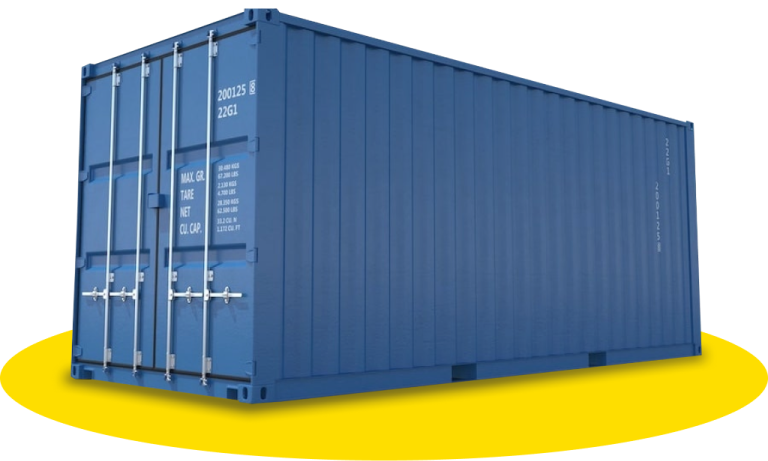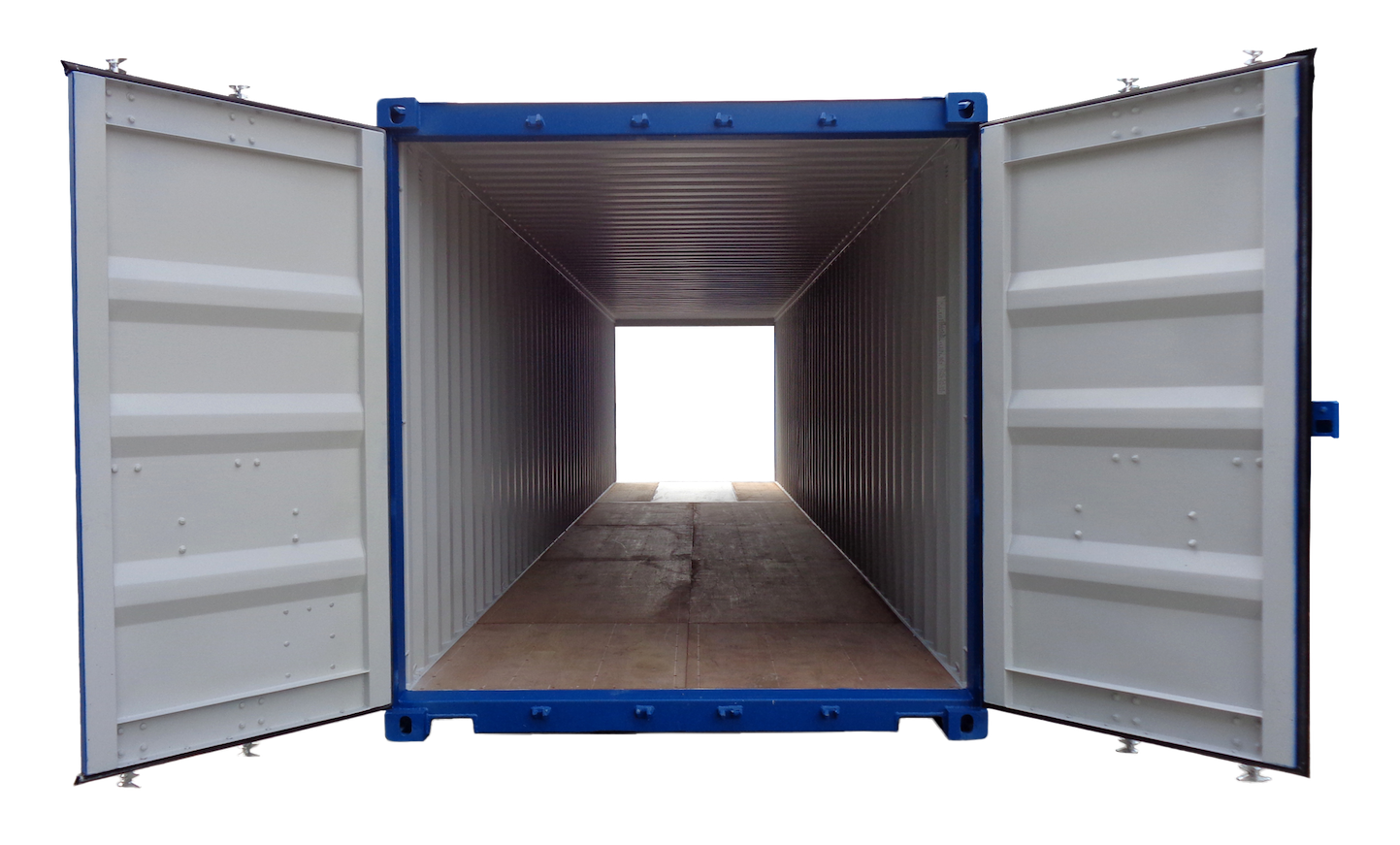Case Study: A Business That Used a New Shipping Container 40 x 8 x 9.6 to Stand Out
Case Study: A Business That Used a New Shipping Container 40 x 8 x 9.6 to Stand Out
Blog Article
The Ultimate Overview to Picking the Right Shipping Container for Your Requirements
When it comes to picking the ideal shipping container, comprehending your details needs is essential. You'll intend to consider variables like size, type, and material to ensure you make the best choice. From common sizes to specialized choices, there's a great deal to discover. And also, budgeting for both the container and any kind of alterations can make a huge distinction. Allow's break down the crucial facets to help you locate the perfect suitable for your demands.
Comprehending Delivery Container Sizes
When you're choosing a delivery container, comprehending the numerous sizes available is essential for making the best decision. Delivering containers commonly come in typical lengths of 20 and 40 feet, but you'll also discover other measurements. Recognizing the dimension you require depends upon what you intend to store or transport.If you're moving smaller sized products, a 20-foot container may be perfect, while larger shipments often need a 40-foot container. The elevation can additionally vary; high dice containers provide additional vertical room, which can be useful for taller goods.Before making a decision, measure your freight, and take into consideration just how much area you'll need for packing and discharging. Constantly consider potential future requirements-- going with a slightly larger container may save you inconvenience down the line. Eventually, selecting the best size will enhance performance and assure your products are secure throughout transportation
Types of Delivery Containers Available
There are a number of kinds of shipping containers available, each developed for particular purposes and freight requirements. The standard completely dry container is versatile, best for basic freight. If you're shipping disposable products, take into consideration a chilled container, which maintains a regulated temperature. For oversized items, high dice containers offer extra height, accommodating taller loads.If you need to transfer heavy equipment or tools, flat shelf containers provide a sturdy base without walls. Meanwhile, open-top containers permit very easy loading of high freight, with a removable tarp covering for defense. If you're searching for versatility, consider a collapsible container that can be easily stored when not in use.Lastly, specialized containers like container containers are utilized for fluids, while vented containers are created for bulk freight that requires air flow. Understanding your freight kind will assist you pick the right container to meet your delivery needs successfully.
Material Factors To Consider for Longevity
When choosing a delivery container, the product plays a vital duty in its resilience. You'll want to weigh the advantages of steel versus light weight aluminum, particularly pertaining to deterioration resistance. Recognizing these aspects can assist you make an extra informed choice for your shipping requires.
Steel vs. Aluminum Containers
How do you pick in between steel and aluminum containers for your delivery requires? Beginning by considering resilience. Steel containers are durable and offer excellent stamina, making them excellent for heavy tons and extreme conditions. They stand up to damages from influences and are often cheaper, which can be a significant factor for budget-conscious buyers.On the other hand, light weight aluminum containers are light-weight, which can save you on delivery prices. They're less complicated to navigate and are a wonderful choice if you need to carry goods regularly. Light weight aluminum is generally much more pricey and much less robust than steel. Consider your details needs thoroughly, consisting of weight, expense, and the sort of cargo you'll be shipping, to make the appropriate choice for your circumstance.
Corrosion Resistance Variables
Selecting the best product doesn't just include weight and expense; deterioration resistance plays a considerable duty in longevity. When picking a shipping container, consider the atmosphere it'll face. Steel containers, while strong, can rust otherwise effectively dealt with. Try to find options with protective finishings or galvanization to improve their life-span. Light weight aluminum, on the various other hand, provides natural deterioration resistance, making it excellent for coastal areas or moist conditions. It can be extra pricey. Furthermore, analyze the container's usage-- if it'll be revealed to chemicals or extreme climate, focus on materials that can withstand these conditions. Buying a corrosion-resistant container now can conserve you from expensive repair work or replacements down the line. Select sensibly for lasting benefits.
Modifications and Customization Options
Delivering containers aren't simply for carrying goods; they can be transformed to fulfill your details needs via numerous modifications and modification options. You can convert a common container into a relaxing office area, a temporary retail store, and even a personal gym. The opportunities are nearly endless.Think about adding home windows, insulation, or air flow to enhance comfort. You could likewise take into consideration electric wiring, pipes, or even personalized shelving to improve capability. If safety's a concern, reinforced locks can give peace of mind.For visual charm, you can paint the container or add an unique layout to make it stick out. Don't forget regarding flooring alternatives-- whether you want resilient plywood or something more sophisticated, it can elevate the space.Ultimately, tailoring your shipping container to match your needs can boost use and create an one-of-a-kind setting that mirrors your style.
Assessing Your Transportation Demands
When it concerns utilizing your customized shipping container, comprehending your transportation needs is vital. Begin by identifying what you'll be delivery-- whether it's heavy equipment, retail items, or personal products. Each sort of freight has different needs regarding size, weight, and accessibility.Next, take into consideration the range and mode of transport. Are you shipping locally, country wide, or globally? This influences the container's layout and functionality. If you're using vehicles, assure your container fits basic straight from the source measurements for easy loading and unloading.Additionally, think of transportation problems. Will your things require special defense from weather condition or temperature variations? If so, you could require insulation or ventilation functions in your container.Lastly, evaluate how frequently you'll be transferring items. Constant shipments may require an extra durable and flexible container to meet recurring needs. By dealing with these aspects, you'll be well-prepared to pick the appropriate delivery container for your needs.
Budgeting for Your Delivery Container
Setting an allocate your delivery container is important for making certain a smooth buying process. Identify just how much you can manage to spend. Maintain in mind that costs can differ substantially based on size, condition, and kind. New containers commonly cost extra, yet utilized ones can offer considerable savings.Next, take into consideration any type of additional costs you might incur, such as transport fees, distribution costs, and alterations. If you plan to tailor the container, consider those costs too. Research different distributors to contrast prices and locate the very best deal that meets your needs.Don' t neglect to consist of any licenses or regulations that might use to your purchase and use the container. By clearly describing your spending plan, you'll be much better prepared to make informed decisions, ensuring you get the appropriate container without breaking the bank.
Maintenance and Take Care Of Longevity
To guarantee your delivery container i was reading this lasts for many years, regular maintenance is essential. Begin by checking the exterior for rust, damages, and damage. If you find any kind of problems, resolve them promptly to stop further wear and tear. Clean the container occasionally, both throughout, to remove dust, debris, and moisture that can cause corrosion.Ensure the doors seal effectively and oil the joints to stay clear of corrosion and sticking. If you're using the container for storage, consider including air flow to decrease humidity and mold development. For additional defense, use a rust-inhibiting paint or sealant annually.If your container's situated in a severe setting, like seaside areas, you might require to raise maintenance frequency. Keep an eye on the floor covering, also; any type of indicators of wear should be repaired right away. With these simple steps, you'll extend the life of your shipping container substantially.
Frequently Asked Questions
Exactly how Do I Discover a Trusted Shipping Container Provider?
To find a reliable shipping container provider, beginning by investigating online testimonials, requesting referrals from pals or market calls, and comparing prices. Always check their qualifications and assurance they offer high quality containers that satisfy your demands.

Can I Rent a Delivery Container Instead of Buying?
Yes, you can absolutely lease a shipping container rather than getting one. Many providers use rental alternatives, which can conserve you money and offer versatility if you only need it for a brief duration.
What Permits Are Needed for Container Positioning?

Are Shipping Containers Weatherproof and Ideal for Outdoor Storage?
Yes, delivering containers are generally weatherproof, designed to endure extreme problems. Their robust construction maintains your products protected and completely dry, making them ideal for outside storage space. Simply guarantee correct ventilation to stop moisture buildup inside.
Exactly how Do I Move a Delivery Container As Soon As Purchased?

Report this page